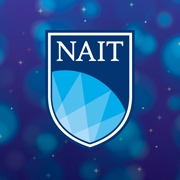Graduates of this course will be able to create modules and templates using Python programming. You will also be able to create object-based programming and RESTful APIs and apply authentication techniques and deployment options.

Use Python programming to build and implement a web-based application that stores persistent data. Python is a versatile, high-level programming language widely used in the programming industry. With the skills gained in this course, you will be able to implement HTML, CSS, JavaScript, and relevant Python frameworks, and use Python programming to create web applications.
Graduates of this course will be able to create modules and templates using Python programming. You will also be able to create object-based programming and RESTful APIs and apply authentication techniques and deployment options.
History
Since its founding over 50 years ago, NAIT has consistently evolved to meet the needs of students and industry in a province that’s the engine of Canada’s economy.
From the first class of 29 communication electrician apprentices in 1962, to today’s current enrolment of 40,000 students and apprentices, NAIT continues to the meet Alberta’s needs – for today and the future.
NAIT’s hands-on, technology-based education and applied research are essential to the productivity and prosperity of Alberta. Graduates have the knowledge and skills employers want. They leave NAIT confident, prepared and in demand.
Being a polytechnic means:
we deliver technology based education across our programs
our education is experiential and hands-on
we work in partnership with industry
our applied research solves real problems
Awards & Recognition:
Every year, NAIT proudly recognizes individuals and organizations that make significant contributions to the Institute through the following awards:
© 2025 coursetakers.com All Rights Reserved. Terms and Conditions of use | Privacy Policy